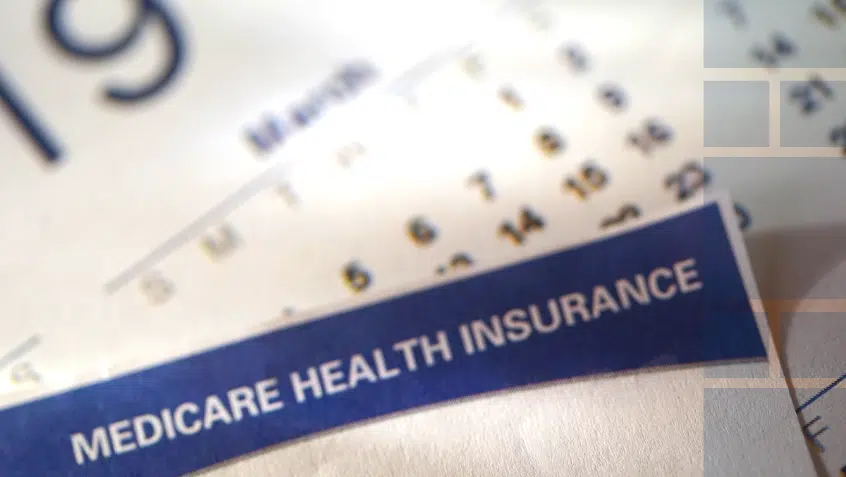Join Us Live for a Discussion on Medicare, Democracy, and the Future of Health Care
Coronavirus Public Health Emergency Highlights the Need for Medicare Enrollment Protections

A new Associated Press (AP) story, “Medicare applications raise anxiety for seniors in pandemic,” highlights the challenges Medicare-eligible individuals may face when trying to enroll in the program during the coronavirus emergency. Their experiences, and those of callers to Medicare Rights’ national helpline, indicate the pandemic is exacerbating an already cumbersome process.
Seniors are at greater risk from COVID-19, and now some face added anxiety due to delays obtaining Medicare coverage. The problem involves certain applications for Medicare’s “Part B” coverage for outpatient care. Part B pays for coronavirus tests. https://t.co/CkMAeuE0YK
— The Associated Press (@AP) April 29, 2020
Knowing how and when to sign up for Medicare can be a daunting task even in the best of times. Enrollment has become increasingly complex in recent years, in part because the rules haven’t kept pace with changes in how people experience their initial Medicare eligibility.
Today, as in 1965 when the Medicare program was created, most people are automatically enrolled in Part A (hospital coverage) and Part B (outpatient coverage) when they turn 65 because they are receiving Social Security benefits. However, an increasing number of Americans are working longer and delaying Social Security benefits. In 2016, only 60% of Medicare-eligible 65-year-olds were taking Social Security, compared to 92% who were in 2002.
Unlike those who are automatically enrolled, this growing cohort must do so themselves. Most can sign up for Part A at any time without penalty but enrolling in Part B is more involved. It requires an understanding of complicated enrollment rules and confusing timelines, as well as the effects of delaying Part B, even by mistake.
People who have other coverage when they become eligible for Medicare have even more to wade through, like whether Medicare will pay primary or secondary, and whether they have access to any other enrollment windows. The answers are different for each type of insurance and situation.
The considerations are dizzying, and the stakes are high. As the article notes, not enrolling on time can have significant consequences. Beneficiaries may face lifetime Part B late enrollment penalties, harmful gaps in coverage, and exposure to high out-of-pocket costs.
Unfortunately, many people do make mistakes. Among the most frequent calls to our helpline are those from or on behalf of people eligible for Medicare who inadvertently, and through no fault of their own, failed to enroll in Part B on time and are living with severe repercussions.
We are concerned that due to the coronavirus national emergency, Medicare-eligible individuals who made enrollment mistakes in the past as well as those who are un- or under-insured may now need their Medicare, and that even more people may experience Part B enrollment pitfalls in the coming months. Accordingly, we strongly urge policymakers to take immediate action to address and anticipate pandemic-related coverage problems.
First, to help those who need coverage now but can’t enroll, we support creating an enrollment pathway and leaving it in place for the duration of the emergency. This could be done by establishing a new Special Enrollment Period (SEP) or by re-opening and extending the General Enrollment Period (GEP). Under either approach, we urge policymakers to simultaneously address related enrollment barriers by reducing waits for coverage, financial penalties, and administrative requirements.
We also encourage policymakers to consider solutions for those who have access to an enrollment period during the pandemic, but who make a mistake or fall through the cracks. Individuals who experience such errors will need to sign up for Medicare as soon as the misstep is discovered—which may be well after the end of the emergency, and after the expiration of the coronavirus-specific SEP or GEP. To facilitate their access to coverage, we recommend expanding Equitable Relief, the federal government’s authority to fix enrollment mistakes, to allow for its application for “good faith” reasons. Doing so would help those who experience Part B enrollment challenges because of the outbreak, but for whom discovery of the problem would be too late to use other forms of relief.
At Medicare Rights, we are deeply concerned about the risks the coronavirus poses to Medicare beneficiary health and well-being. We will continue to advocate for common-sense solutions to ensure older adults, people with disabilities, and their families can access the care, coverage, and services they need, now and in the future.
Show Comments
We welcome thoughtful, respectful discussion on our website. To maintain a safe and constructive environment, comments that include profanity or violent, threatening language will be hidden. We may ban commentors who repeatedly cross these guidelines.
Help Us Protect & Strengthen Medicare
Donate today and make a lasting impact
More than 67 million people rely on Medicare—but many still face barriers to the care they need. With your support, we provide free, unbiased help to people navigating Medicare and work across the country with federal and state advocates to protect Medicare’s future and address the needs of those it serves.
The Latest
Most Read
Add Medicare to Your Inbox
Sign up to receive Medicare news, policy developments, and other useful updates from the Medicare Rights.
View this profile on InstagramMedicare Rights Center (@medicarerights) • Instagram photos and videos









